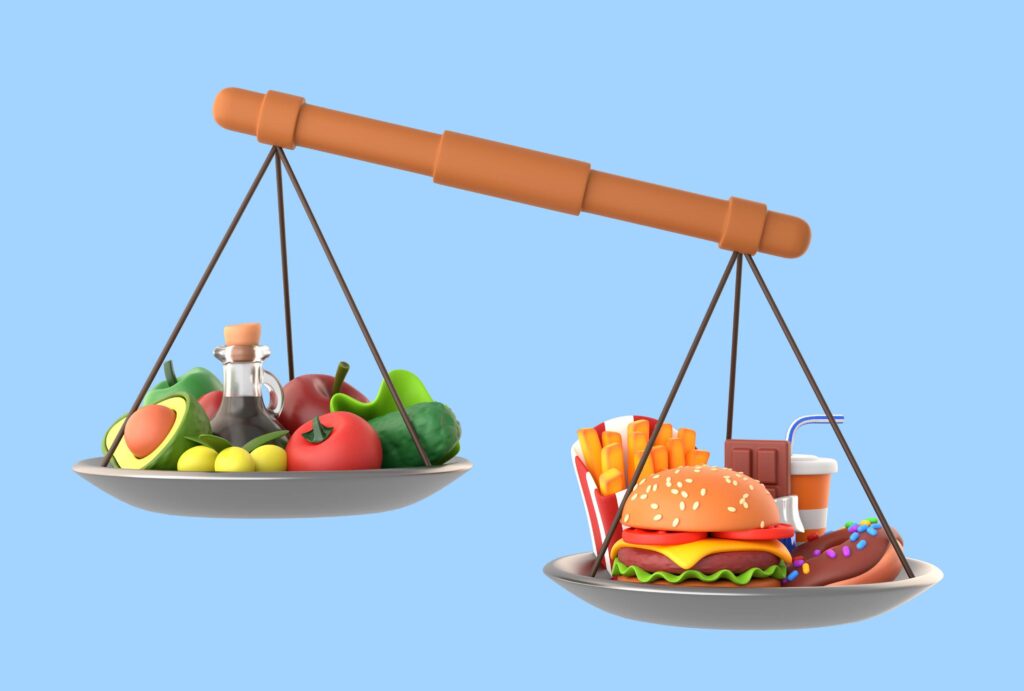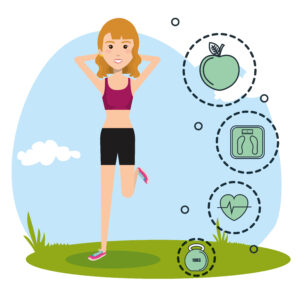Diet & Nutrients
Nourishing Your Body: A Guide to Healthy Eating
In today’s fast-paced world, it’s easy to neglect our dietary needs. A balanced and nutritious diet is essential for overall well-being, from boosting energy levels to strengthening the immune system. Let’s delve into the world of healthy eating, exploring various aspects that can help you nourish your body and achieve your health goals.
The Foundation of Health: A Balanced Diet
A balanced diet is like a well-crafted puzzle, with each piece contributing to the overall picture. It involves consuming a variety of foods from different food groups in appropriate proportions. Key components of a balanced diet include:
- Carbohydrates: These provide energy for the body. Opt for complex carbohydrates like whole grains, fruits, and vegetables.
- Proteins: Essential for building and repairing tissues, proteins can be sourced from lean meats, poultry, fish, eggs, legumes, and dairy products.
- Fats: While often misunderstood, healthy fats are crucial for various bodily functions. Include sources like avocados, nuts, seeds, and olive oil.
- Vitamins and Minerals: These micronutrients play vital roles in numerous bodily processes. Consume a colorful variety of fruits, vegetables, and whole grains to ensure adequate intake.

Healthy Eating for Specific Goals
Depending on your health goals, you may need to tailor your diet accordingly:
- Heart Health: Prioritize foods rich in omega-3 fatty acids, such as fatty fish, flaxseeds, and walnuts. Reduce intake of saturated and trans fats.
- Diabetes Management: Maintain stable blood sugar levels by consuming a balanced diet, including whole grains, lean proteins, and plenty of non-starchy vegetables.
- Weight Loss: Focus on calorie control, portion sizes, and nutrient-dense foods. Incorporate plenty of fruits, vegetables, and lean proteins.
- Weight Gain: Increase calorie intake through nutrient-rich foods like nuts, seeds, avocados, and healthy fats. Don’t forget to include adequate protein for muscle growth.
Healthy Snacking: Fuel Your Body the Right Way
Snacking can be a healthy way to maintain energy levels and prevent overeating at mealtimes. Opt for nutritious snacks like:
- Fruits: Fresh, dried, or frozen fruits are excellent sources of vitamins, minerals, and fiber.
- Vegetables: Raw vegetables with hummus or a light dip make for a satisfying and healthy snack.
- Nuts and Seeds: Packed with healthy fats, protein, and fiber, nuts and seeds are a great choice.
- Yogurt: Choose plain, unsweetened yogurt and add fruits or nuts for flavor and extra nutrients.
Meal Planning for Success ( https://sourceofprotein.in/ )
Meal planning can significantly simplify your healthy eating journey. By planning your meals in advance, you can make healthier choices and avoid impulsive, unhealthy decisions. Consider these tips:
- Cook in Bulk: Prepare large batches of meals to save time and effort.
- Involve the Family: Get your family involved in meal planning and cooking to foster healthy eating habits.
- Use a Meal Planning App: Utilize technology to streamline your meal planning process.

( http://Nourishjournal.com ) Healthy Eating on the Go
A busy lifestyle doesn’t have to compromise your healthy eating goals. Here are some tips for maintaining a healthy diet while on the go:
- Pack Healthy Lunches: Prepare your lunches in advance to avoid unhealthy takeout options.
- Choose Healthy Snacks: Keep healthy snacks on hand to resist unhealthy temptations.
- Opt for Healthy Restaurant Choices: Make informed choices when dining out by selecting grilled or baked options.
Seeking Professional Guidance
If you have specific dietary needs or concerns, consider consulting a registered dietitian. They can provide personalized advice and help you create a sustainable healthy eating plan.
Remember, healthy eating is a journey, not a destination. By making small, consistent changes to your diet, you can improve your overall health and well-being. Embrace a balanced approach, listen to your body’s needs, and enjoy the process of nourishing yourself.
- A balanced diet includes a variety of foods from all food groups. It should consist of carbohydrates, proteins, fats, vitamins, and minerals. A balanced diet provides the body with the essential nutrients it needs to function optimally.
 Healthy weight loss involves a combination of a balanced diet and regular physical activity. Focus on consuming fewer calories than you burn, prioritize whole foods, and engage in activities you enjoy.
Healthy weight loss involves a combination of a balanced diet and regular physical activity. Focus on consuming fewer calories than you burn, prioritize whole foods, and engage in activities you enjoy.
- Healthy snack options include fruits, vegetables, nuts, seeds, yogurt, and hard-boiled eggs. These snacks provide essential nutrients and keep you feeling satisfied between meals.
- The amount of water you need varies depending on factors like your activity level and climate. As a general guideline, aim to drink at least 8 glasses of water per day.




